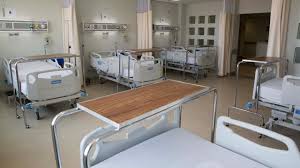From
the global to national and regional to national rankings, the Nigerian
healthcare system has not been portrayed as being the best in terms of access
to critical health facilities at the primary, secondary and tertiary levels. The
negative
representation of the country’s health system has also been premised on the
fact that processes leading to healthcare service delivery are not standardised
enough.
As
long as facility management companies are expected to provide support services
to individuals and businesses, Infoprations
believe the companies have significant roles to play in changing the country’s
healthcare system narratives. The country’s
poor healthcare status must be changed through the effective management of
infrastructure facilities, catering, cleaning, waste management, security,
laundry services, the clinical staffing practices and health care processes. Infoprations’
checks revealed that FM companies need to devise a special awareness campaign
for the users of health facilities especially doctors, nurses and other
practitioners. Beyond this, FM companies need to be on the toes of concerned
stakeholders towards the functionality of critical health facilities in some
states. For instance, analysis indicates that adult weighting scale, Thermometer,
child weighting scale, stethoscope, infant weighting scale, sphygmomanometer, autoclave,
electric boiler/steamer and electric dry heat sterilizer at the government
hospitals in Bauchi, Cross River, Imo, Kebbi, Kogi, Niger, Osun and Taraba
states need urgent attention.
Evidence
has also established that “most public hospitals do not have a policy framework
for outsourcing in general and FM services, in particular, giving room for
duplication of functions and non-establishment of functional FM units to handle
FM activities.”
Facility
management companies need to deploy their resources towards innovative
healthcare FM solutions delivery that would improve the country’s health
efficiency status, life expectancy and reducing healthcare expenditure on
preventive and curative health services.

Comments
Post a Comment